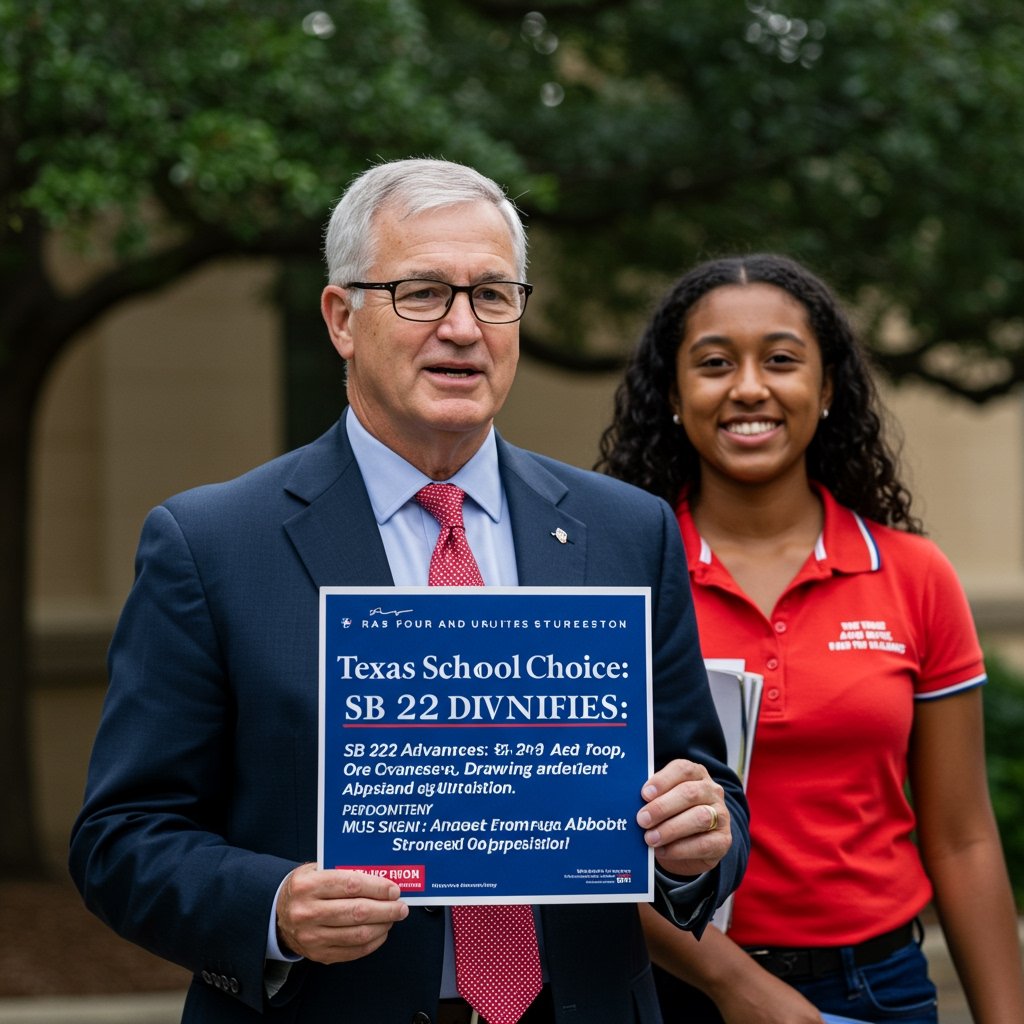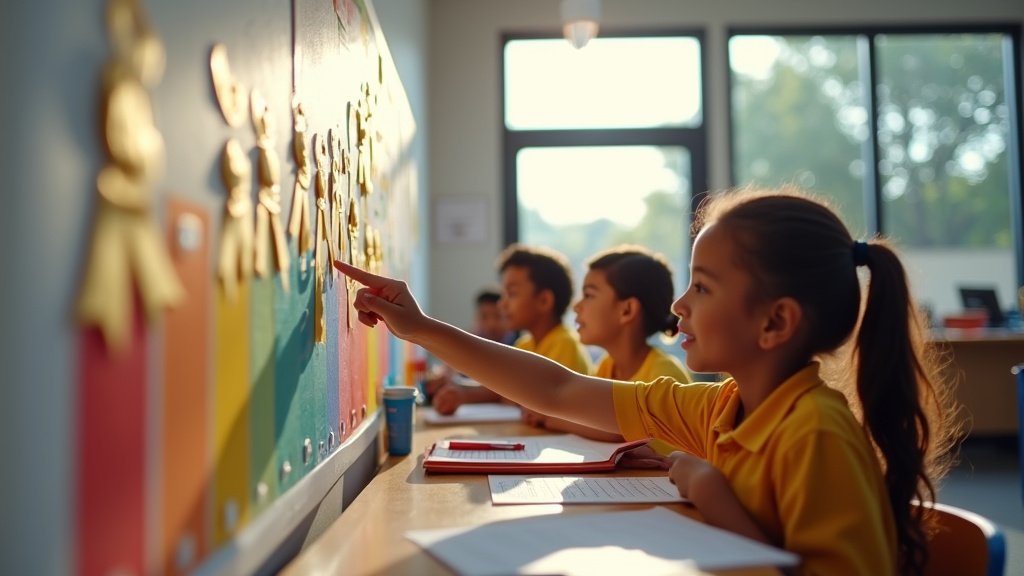Texas Senate Committee Advances Controversial School Choice Bill
Austin, TX — The Texas Senate Education Committee on March 27 took a significant step in the ongoing statewide debate over school choice, voting 8-3 to advance Senate Bill 22. This proposed legislation, if enacted, would establish state-funded education savings accounts (ESAs), allowing families to use public funds for approved educational expenses outside the traditional public school system, including private school tuition, tutoring, and other related costs. The committee’s vote signals a crucial hurdle cleared for proponents of school choice, setting the stage for a potentially intense battle on the Senate floor.
Governor Abbott Lauds Committee’s Action as Step for Parental Empowerment
Following the committee’s favorable vote, Governor Greg Abbott, a vocal advocate for expanding educational options, issued a statement commending the advancement of S.B. 22. Governor Abbott characterized the committee’s action as a vital step towards empowering parents and enhancing their ability to choose the best educational environment for their children. In his statement, Abbott emphasized that the creation of education savings accounts through S.B. 22 would provide families with much-needed financial flexibility. This flexibility, he argued, is essential for those seeking alternatives to traditional public schools, whether due to concerns about academic performance, curriculum, or specific educational needs of their students.
The Governor’s support highlights the philosophical divide surrounding the bill. Proponents, often framing the issue as one of parental rights and market-based reform, argue that ESAs foster competition among schools, ultimately improving educational outcomes across the board. They contend that state funds allocated to ESAs are simply following the student, giving parents control over taxpayer dollars designated for their child’s education rather than mandating they attend a specific district school. The 8-3 vote within the Senate Education Committee reflects a majority alignment with this perspective among the committee members.
Opponents Mobilize Against Bill, Labeling it a Voucher Scheme
Conversely, the advancement of S.B. 22 has ignited strong opposition from a coalition of advocacy groups vehemently opposed to using public funds for private education. Among the most prominent voices are the Texas American Federation of Teachers (Texas AFT) and the organization Every Texan. These groups have publicly and unequivocally labeled S.B. 22 a “voucher scheme,” a term often used by opponents to evoke concerns about privatization and the siphoning of resources away from public education.
Opponents argue that establishing state-funded ESAs would inevitably undermine the funding and stability of traditional public schools, which serve the vast majority of Texas students. They contend that diverting public money to private institutions, which are often not subject to the same accountability standards as public schools, could lead to a two-tiered education system, potentially exacerbating inequities. Concerns have also been raised about the lack of transparency regarding how private schools receiving ESA funds would operate and whether they would be required to accept all students, regardless of background or need.
In response to the committee vote, these advocacy groups are actively mobilizing their constituents across the state. Texas AFT, Every Texan, and other opponents are coordinating efforts to educate the public about their concerns regarding S.B. 22 and its potential impact on the future of public education in Texas. A significant part of their strategy involves extensive lobbying efforts targeting members of the Texas Senate. Their objective is clear: to prevent the bill from securing the necessary votes for passage when it comes up for consideration on the Senate floor.
The Path Forward: Senate Floor Debate Looms
The committee’s 8-3 vote on March 27 marks a critical juncture, moving S.B. 22 closer to becoming law. However, the legislative process in Texas involves multiple stages, and the bill now faces a significant challenge on the Senate floor. Debates surrounding school choice and the use of public funds for private education have historically been contentious in the Texas Legislature, often dividing along partisan lines and facing resistance from rural Republicans concerned about the impact on their local school districts.
The planned lobbying campaigns by groups like Texas AFT and Every Texan will likely be intense, aiming to persuade senators to vote against the measure. Proponents, bolstered by the Governor’s support and the committee vote, will simultaneously work to secure passage. The outcome on the Senate floor remains uncertain, highlighting the deep divisions and high stakes involved in the debate over the future of education funding and access in Texas. The coming weeks will be crucial in determining the fate of Senate Bill 22 and its potential to reshape the state’s educational landscape.






